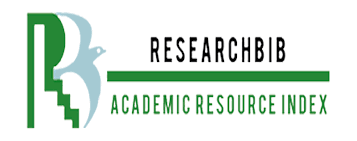The influence of emotional intelligence on burnout syndrome: a systematic review
DOI:
https://doi.org/10.35622/j.rep.2023.02.002Keywords:
well-being, burnout, emotional intelligence, systematic review, healthAbstract
Emotional intelligence consists of the individual's ability to intuit and understand one's own feelings, allowing him/her to give a positive response to the various problems arising from emotions or feelings, while burnout is a state of fatigue or frustration, caused by the dedication to a cause, way of life or relationship, generating chronic work stress. However, a good level of emotional intelligence seems to have a positive influence on the person. Therefore, the aim of the present study was to analyze the relationship between emotional intelligence and burnout. After searching for scientific articles in international databases such as PsycINFO, Psicodoc, PubMed (MEDLINE), Scielo, Scopus, Sciencie Direct and Web of Science, as well as in the national electronic resource Dialnet, a total of 89 scientific articles were obtained which, after applying the established inclusion criteria, left 12 articles for review. The results of the studies included a sample size of 2.298 individuals from different fields, showing the relationship between both constructs. In conclusion, higher levels of emotional intelligence are related to lower burnout scores. Therefore, emotional intelligence is considered a protective variable against work-related stress that, consequently, develops the promotion of leadership, academic and professional engagement and personal well-being.
Estadísticas del Artículo
References
Alam, A., y Ahmad, M. (2018). The role of teachers’ emotional intelligence in enhancing student achievement. Journal of Asia Business Studies, 12(1), 31–43. https://doi.org/10.1108/JABS-08-2015-0134
Alexander, P. A. (2020). Methodological guidance paper: The art and science of quality systematic reviews. Review of Educational Research, 90(1), 6-23. https://doi.org/10.3102%2F0034654319854352
Álvarez-Ramírez, M. R., Pena, M., y Losada, L. (2017). Misión posible: mejorar el bienestar de los orientadores a través de su inteligencia emocional. Red de Revistas Científicas de América Latina y el Caribe, España y Portugal, 28(1), 19–32. https://doi.org/10.5944/reop.vol.28.num.1.2017.19356
Arquero, J., y Donoso, J. (2013). Docencia, investigación y burnout: el síndrome del quemado en profesores universitarios de Contabilidad. Revista de Contabilidad, 16(2), 94–105. https://doi.org/10.1016/j.rcsar.2013.04.001.
Bisquerra, P., Pérez, J.C., y García, E. (2015). Inteligencia emocional en educación. Síntesis.
Caballero, C., Hederich, C., y García, A. (2015). Relación entre burnout y engagement académicos con variables sociodemográficas y académicas. Psicología desde el Caribe, 32(2), 254–267. http://www.redalyc.org/articulo.oa?id=21341030005
Caruso, A. L., Giammanco, M. D., y Gitto, L. (2014). Burnout experience among teachers: a case study. Mediterranean Journal of Clinical Psychology, 2(3), 1–20. http://dx.doi.org/10.6092/2282-1619/2014.2.1023
Castillo-Gualda, R., García, V., Pena, M., Galán, Arturo, y Bracckett, M. A. (2017). Resultados preliminares del método RULER en la inteligencia emocional y en el compromiso laboral de profesores españoles. Electronic Journal of Research in Educational Psychology, 15(3), 641–659. http://dx.doi.org/10.25115/ejrep.43.17068
Cejudo, J., López-Delgado, M. L., Rubio, M. J., y Latorre, J. M. (2015). La formación en educación emocional de los docentes: una visión de los futuros maestros. Revista Española de Orientación y Psicopedagogía, 26(3), 45–62. https://doi.org/10.5944/reop.vol.26.num.3.2015.16400
Cheung, C. K., Cheung, H. Y., y Huec, M. T. (2015). Emotional intelligence as a basis for self-esteem in young adults. The Journal of Psychology, 149(1), 63–84. https://doi.org/10.1080/00223980.2013.838540
De Francisco, C., Garcés de los Fayos, E. J., y Arce, C. (2014). Burnout en deportistas: prevalencia del síndrome a través de dos medidas. Cuadernos de Psicología del Deporte, 14(1), 29–39. https://doi.org/10.4321/S1578-84232014000100004
De la Fuente, E. I., García, J., Cañadas, G. A., San Luis, C., Cañadas, G. R., Aguayo, R., de la Fuente, L., y Vargas, C. (2015). Psychometric properties and scales of the Granada Burnout Questionnaire applied to nurses. International Journal of Clinical and Health Psychology, 15(2), 130–138. https://doi.org/10.1016/j.ijchp.2015.01.001
Dott, C., Mamarelis, G., Karam, E., Bhan, K., y Akhtar, K. (2022). Emotional Intelligence and Good Medical Practice: Is There a Relationship? Cureus Journal of Medical Science, 14(3), e23126. https://doi.org/10.7759/cureus.23126
Esteban, B. (2014). Una aproximación a la influencia de la Inteligencia Emocional percibida en su relación con los niveles de Burnout y Engagement en el desempeño del Trabajo Social. Revista Internacional de Trabajo Social y Bienestar, 3, 123–129. https://revistas.um.es/azarbe/article/view/198451
Extremera, N., Durán A., y Rey, L. (2010). Recursos personales, síndrome de estar quemado por el trabajo y sintomatología asociada al estrés en docentes de enseñanza primaria y secundaria. Ansiedad Estrés, 16(1), 47–60. https://dialnet.unirioja.es/servlet/articulo?codigo=3191018
Fernández-Berrocal, P., Alcaide, R., Domínguez, E., Fernández-McNally, C., Ramos, N.S., Ravira, M. (1998). Adaptación al castellano de la escala rasgo de metaconocimiento sobre estados emocionales de Salovey et al.: datos preliminares. Libro de Actas del V Congreso de Evaluación Psicológica. Málaga.
Fernández-Berrocal, P., Extremera, N., y Ramos, N. (2004). Validity and reliability of the Spanish modified version of the Trait Meta-Mood Scale. Psychological Reports, 94(3), 751–755. https://doi.org/10.2466/pr0.94.3.751-755
Fernández-Berrocal, P., y Extremera, N. (2009). La Inteligencia Emocional y el estudio de la felicidad. Revista Interuniversitaria de Formación del Profesorado, 66(23,3), 85–108. https://dialnet.unirioja.es/servlet/articulo?codigo=3098211
Garcés de Los Fayos, E.J., De la Fuente, C., y Arce, C. (2012). Inventario de Burnout en Deportistas Revisado (IBD-R). Revista de Psicología del Deporte 21(2), 271–278. https://www.redalyc.org/articulo.oa?id=235126897007
Garrido, P., y Gaeta, M.L. (2016). La competencia socioemocional docente en el logro del aprendizaje de las competencias genéricas del perfil de egreso de educación media superior. Revista de Comunicación Vivat Academia, 137, 108–123. http://dx.doi.org/10.15178/va.2016.137.108-123
Goleman, D. (2012). Inteligencia Emocional. Kairós.
González, J., Ros, A. B., Jiménez, M. I., y Garcés de los Fayos, E. (2014). Análisis de los niveles de burnout en deportistas en función del nivel de inteligencia emocional percibida: el papel moderador de la personalidad. Cuadernos de Psicología del Deporte, 14(3), 39–45. https://revistas.um.es/cpd/article/view/211231
Guy, M. E., y Lee, H. J. (2015). How emotional intelligence mediates emotional labor in public service jobs. Review of Public Personnel Administration, 35(3), 261–77. https://doi.org/10.1177/0734371X13514095
Higgins, N.C., Bailey, S.F., LaChapelle, D.L., Harmanc, K., y Had-jistavropoulos, T. (2015). Coping styles, pain expressiveness, and implicit theories of chronic pain. The Journal of Psychology, 149(7), 737–750. https://doi.org/10.1080/00223980.2014.977759
Ilaja, B., y Reyes, C. (2016). Burnout y estrategias de inteligencia emocional en profesores universitarios: implicaciones en la salud laboral educativa. Psicología desde el Caribe, 33(1), 31–42. http://dx.doi.org/10.14482/psdc.33.1.8081
Iorga, M., Socolov, V., Muraru, D., Dirtu, C., Soponaru, C., Ilea, C., y Socolov, D. G. (2017). Factors Influencing Burnout Syndrome in Obstetrics and Gynecology Physicians. BioMed Research International, 1–10. https://doi.org/10.1155/2017/9318534
Ju, C. T., Lan, J. J., Li, Y., y Feng, W. (2015). The mediating role of workplace social support on the relationship between trait emotional intelligence and teacher burnout. Teaching and Teacher Education, 51, 58–67. https://doi.org/10.1016/j.tate.2015.06.001
Lampreia-Raposo, C., Rodrigues-Correia, P., Caldeira-Berenguer, S., Mascarenhas-Rabiais, I., y Madureira-Mendes, M. (2023). Critical care nurses' emotional intelligence: A scoping review. Enfermeria Clinica, 33(1), 68–71. https://doi.org/10.1016/j.enfcle.2022.04.005
Liébana‐Presa, C., Fernández‐Martínez, E., y Morán, C. (2017). Relación entre la inteligencia emocional y el burnout en estudiantes de enfermería. Psychology, Society and Education, 9(3), 335–334. http://dx.doi.org/10.25115/psye.v9i3.857
Liye, Z., Jeffer-Eidi, S., Wei, G. X., Tao, H., Yeung, A., Barbosa-Neto, O., Chen, K., y Sai-Chuen, S. (2018). Effects of mind-body exercises (Tai Chi/Yoga) on heart rate variability parameters and perceived stress: A systematic review with meta-analysis of randomized controlled trials. Journal of Clinical Medicine, 7(11), 404. https://doi.org/10.3390/jcm7110404
Mancini, G., Righi, N., Trombini, E., y Biocalti, R. (2022). Trait emotional intelligence and burnout in primary school teachers. A systematic review. Ricerche di Psicología, 45(1), 1–10. https://doi.org/ 10.3280/rip2022oa13705
Martínez, J.P., Méndez, I., y García-Sevilla, J. (2015). Burnout y empatía en cuidadores profesionales de personas mayores. European Journal of Investigation in Health, Psychology and Education, 5(3), 325-333. https://doi.org/10.30552/ejihpe.v5i3.135
Maslach, C., Jackson, S.E., y Leiter, M.P. (1996). Maslach Burnout Inventory. Consulting Psychologist Press.
Maslach, C., y Jackson, S. (1986). Maslach Burnout Inventory Manual. Consulting Psychologists.
Mayer, J.D., Salovey, P., y Caruso, D.R. (2009). Test de inteligencia emocional Mayer-Salovey-Caruso MSCEIT. TEA ediciones.
Meaghera, B. R. (2015). The effects of interpersonal differences within religious communities: A group actor-partner interdependence model of U.S. congregations. The International Journal for the Psychology of Religion, 25(1), 74–90. https://doi.org/10.1080/10508619.2013.864531
Megías, M. J., Magallón, A., y Bresó, E. (2011) ¿Puede la inteligencia emocional predecir el bienestar en los equipos de trabajo? Fórum de Recerca, 16, 714–720. http://hdl.handle.net/10234/77308
Molero, M. M., Pérez-Fuentes, M. C., Barragán, A. B., Soriano, J. G., Oropesa, N. F., Sisto, M., y Gázquez, J. J. (2020). Mindfulness in Family Caregivers of Persons with Dementia: Systematic Review and Meta-Analysis. Healthcare, 8(3), 193. https://doi.org/10.3390/healthcare8030193
Molero, M. M., Pérez-Fuentes, M. C., Soriano, J. G., Tortosa, B. M., Oropesa, N. F., Simón, M. M., y Gázquez, J. J. (2020). Personalidad y percepción de la creatividad en el trabajo sobre el engagement en enfermería. Anales de Psicología, 36(3), 533–542. https://doi.org/10.6018/analesps.405391
Moreno, B., Oliver, C., y Aragoneses, A. (1991). El burnout, una forma específica de estrés laboral. En G. Buela-Casal, y V.E. Caballo (Eds.), Manual de Psicología Clínica Aplicada (pp. 271–279). Siglo XXI.
Nespereira-Campuzano, T., y Vázquez-Campo, M. (2017). Inteligencia emocional y manejo del estrés en profesionales de enfermería en un departamento de urgencias hospitalarias. Enfermería Clínica, 27(3), 172–178. https://doi.org/10.1016/j.enfcli.2017.02.007
Ortíz-Acosta, R., y Beltrán-Jiménez, B.E. (2011). Inteligencia emocional percibida y desgaste laboral en médicos internos de pregrado. Educación Médica, 14(1), 49–54. https://scielo.isciii.es/scielo.php?script=sci_arttext&pid=S1575-18132011000100010
Ortíz-Acosta, R., y Beltrán-Jiménez, B.E. (2019). Habilidades clínicas, inteligencia emocional percibida y desgaste laboral en médicos pasantes de servicio social. Investigación en Educación Médica, 8(29), 76-84. https://doi.org/10.1016/j.riem.2016.11.006
Page, M. J., McKenzie, J. E., Bossuyt, P. M., Boutron, I., Hoffmann, T. C., Mulrow, C. D., Shamseer, L., Tetzlaff, J. M., Akl, E. A., Brennan, S. E., Chou, R., Glanville, J., Grimshaw, J. M., Hróbjartsson, A., Lalu, M. M., Li, T., Loder, E. W., Mayo-Wilson, E., McDonald, S., Moher, D. (2021). The PRISMA 2020 statement: an updated guideline for reporting systematic reviews. British Medical Journal, 372. https://doi.org/10.1136/bmj.n71
Pérez, A. R., Salgado, A., y Salgado, D. B. (2018). Resilience and Organizations: A State of the Art. Scientific Research An Academic Publisher, 6(2), 194–209. https://scholar.archive.org/work/dpt53cyhfbcx5etxzqbd5mz6zq
Puertas-Molero, P., Zurita-Ortega, F., Chacón-Cuberos, R., Martínez-Martínez, A., Castro-Sánchez, M., y González-Valero, G. (2018). An Explanatory Model of Emotional Intelligence and Its Association with Stress, Burnout Syndrome, and Non-Verbal Communication in the University Teachers. Journal of Clinical Medicine, 7(12), 1–8. https://doi.org/10.3390/jcm7120524
Reizer, A. (2015). Influence of employees’ attachment style son their life satisfaction as mediated by job satisfaction and burnout. The Journal of Psychology, 149(4), 356–377. https://doi.org/10.1080/00223980.2014.881312
Rodríguez-Fernández, A., Ramos-Díaz, E., Fernández-Zabala, A., Goñi, E., Esnaola, I., y Goñi, A. (2016). Contextual and psychological variables in a descriptive model of subjective well-being and school engagement. International Journal of Clinical and Health Psychology, 16(2), 166–174. https://doi.org/10.1016/j.ijchp.2016.01.003
Salovey, P., Mayer, J. D., Goldman, S.L., Turvey, C., y Palfai, T. P. (1995). Emotional attention, clarity, and repair: exploring emotional intelligence using the Trait Meta-Mood Scale. En J.W. Pennebaker (Ed.), Emotion, Disclosure y Health (pp. 125-151). American Psychological Association.
Sarrionandia, A., Ramos-Díaz, E, y Fernández-Lasarte, O. (2018). Resilience as a Mediator of Emotional Intelligence and Perceived Stress: A Cross-Country Study. Frontiers in Psychology, 21(9), 1–9. https://doi.org/10.3389/fpsyg.2018.02653
Schönfeld, P., Brailovskaia, J., Bieda, A., Chi Zhang, X., y Margraf, J. (2016). The effects of daily stress on positive and negative mental health: Mediation through self-efficacy. International Journal of Clinical and Health Psychology, 16(1), 1–10. https://doi.org/10.1016/j.ijchp.2015.08.005
Stoller J. K. (2021). Emotional Intelligence: Leadership Essentials for Chest Medicine Professionals. Chest, 159(5), 1942–1948. https://doi.org/10.1016/j.chest.2020.09.093
Soriano, J. G., Pérez-Fuentes, M. C., Molero, M. M., Tortosa, B. M., y González, A. (2019). Benefits of psychological intervention related to stress and anxiety: Systematic review and meta-analysis. European Journal Education Psychology, 12, 191-206. https://doi.org/10.30552/ejep.v12i2.283
Soriano-Sánchez, J. G. (2022). Beneficios de la intervención ante el Trastorno de Estrés Postraumático en soldados. Una revisión sistemática. Revista Estudios Psicológicos, 3(1), 34–48. https://doi.org/10.35622/j.rep.2023.01.003
Soriano-Sánchez, J. G. (2023). Beneficios de las intervenciones en resiliencia e inteligencia emocional en personal militar. Revista Cubana de Medicina Militar, 52(2), e02302466. https://revmedmilitar.sld.cu/index.php/mil/article/view/2466/1834
Soriano-Sánchez, J. G., Jiménez-Vázquez, D., y Sastre-Riba, S. (2023). Una revisión sistemática de la importancia del ejercicio físico sobre la autoeficacia y aprendizaje del estudiante. Retos, 48, 911-918. https://doi.org/10.47197/retos.v48.97581
Soriano-Sánchez, J., y Jiménez-Vázquez, D. (2022a). Una revisión sistemática de la utilización de las TIC e inteligencia emocional sobre la motivación y el rendimiento académico. Technological Innovations Journal, 1(3), 7–27. https://doi.org/10.35622/j.ti.2022.03.001
Soriano-Sánchez, J. G., y Jiménez-Vázquez, D. (2022b). Factores asociados a la ideación suicida en estudiantes. Revista Revoluciones, 4(10), 48–63. https://doi.org/10.35622/j.rr.2022.010.005
Soriano-Sánchez, J., y Jiménez-Vázquez, D. (2022c). Importancia de la innovación docente como proceso y gestión en el ámbito de Ciencias de la Salud: una revisión sistemática. Gestionar: Revista de Empresa y Gobierno, 2(4), 73–85. https://doi.org/10.35622/j.rg.2022.04.006
Soriano-Sánchez, J. G., y Jiménez-Vázquez, D. (2022d). Recurso de afrontamiento “locus de control” en enfermeros y pacientes: una revisión sistemática de estudios longitudinales. Revista Estudios Psicológicos, 3(1), 7–17. https://doi.org/10.35622/j.rep.2023.01.001
Soriano-Sánchez, J. G., y Jiménez-Vázquez, D. (2022e). Eficacia de las intervenciones sobre el síndrome de burnout en enfermeros: una revisión sistemática y metaanalítica. Revista Acciones Médicas, 2(1), 7–23. https://doi.org/10.35622/j.ram.2023.01.001
Soriano-Sánchez, J. G., y Jiménez-Vázquez, D. (2022f). Factores asociados a la tolerancia al tratamiento ante la presencia de enfermedad en población adolescente: una revisión sistemática. Gestionar: Revista de Empresa y Gobierno, 3(1), 60–71. https://doi.org/10.35622/j.rg.2023.01.005
Soriano-Sánchez, J. G., y Jiménez-Vázquez, D. (2023). Las ventajas del uso de la realidad aumentada como recurso docente pedagógico. Revista Innova Educación, 5(2), 7–28. https://doi.org/10.35622/j.rie.2023.02.001
Soriano-Sánchez, J. G., y Sastre-Riba, S. (2022). Predictores asociados al consumo de tabaco en adolescentes: una revisión sistemática. Retos, 46, 1065–1072. https://doi.org/10.47197/retos.v46.93114
Tejero, C. M., Ferández, M. J., y Carballo, R. (2010). Medición y prevalencia del síndrome de quemarse por el trabajo (burnout) en la dirección escolar. Revista de Educación, 351, 361–383. https://dialnet.unirioja.es/servlet/articulo?codigo=3123709
Vicente-Galindo, M. A., López-Herrerab, E., Pedrosac, I., Suárez-Álvarezc, J., Galindo-Villardóna, M. P., y García-Cueto, E (2017). Estimating the effect of emotional intelligence in wellbeing among priests. International Journal of Clinical and Health Psychology, 17(1), 46–53. https://doi.org/10.1016/j.ijchp.2016.10.001
Vizoso-Gómez, C., y Arias-Gundín, O. (2018). Resiliencia, optimismo y burnout académico en estudiantes universitarios. European Journal of Education and Psychology, 11(1), 47–59. https://doi.org/10.30552/ejep.v11i1.185
Wang, Y., y Wang, Y. (2022). The Interrelationship Between Emotional Intelligence, Self-Efficacy, and Burnout Among Foreign Language Teachers: A Meta-Analytic Review. Frontiers in Psychology, 13, 913638. https://doi.org/10.3389/fpsyg.2022.913638
Wont, C. S., y Law, K. S. (2002). The effects of leader and follower emotional intelligence on performance and attitude: An exploraty study. The Leadership Quarterly, 13(3), 243–274. https://doi.org/10.1016/S1048-9843(02)00099-1
Yin, H. (2015). The effect of teachers’ emotional labour on teaching satisfaction: Moderation of emotional intelligence. Teacher and Teaching, 21(7), 789–810. https://doi.org/10.1080/13540602.2014.995482
Zhu, Y., Liu, C. C., Guo, B. M., Zhao, L., y Lou, F. L. (2015). The effects of leader and follower emotional intelligence on performance and attitude: An exploraty study. The Leadership Quarterly, 13(3), 243–274. https://doi.org/10.1016/S1048-9843(02)00099-1
Published
Issue
Section
License
Copyright (c) 2023 José-Gabriel Soriano-Sánchez, David Jiménez-Vázquez (Autor/a)

This work is licensed under a Creative Commons Attribution 4.0 International License.
La Revista Estudios Psicológicos del Instituto Universitario de Innovación Ciencia y Tecnología Inudi Perú está sobre una licencia internacional Creative Commons Atribución 4.0. Lo que permite que los archivos sean de libre acceso y distribuidos libremente.
LOS AUTORES RETIENEN SUS DERECHOS:
- Los autores retienen sus derechos de marca y patente, y tambien sobre cualquier proceso o procedimiento descrito en el artículo.
- Los autores retienen el derecho de compartir, copiar, distribuir, ejecutar y comunicar públicamente el artículo publicado en la Revista Estudios Psicológicos (por ejemplo, colocarlo en un repositorio institucional o publicarlo en un libro), con un reconocimiento de su publicación inicial.
- Los autores retienen el derecho a hacer una posterior publicación de su trabajo, de utilizar el artículo o cualquier parte de aquel (por ejemplo: una compilación de sus trabajos, notas para conferencias, tesis, o para un libro), siempre que indiquen la fuente de publicación (autores del trabajo, revista, volumen, número y fecha).



















